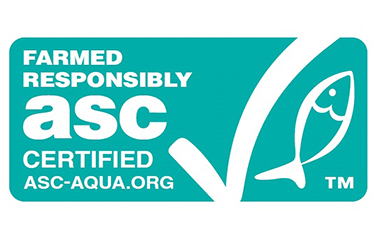The Aquaculture Stewardship Council (ASC) has released its first annual report analyzing efforts made by the organization in 2021 to expand into new markets and improve the accessibility of the certification.
Established in 2010 as an independent nonprofit organization, the ASC developed global aquaculture standards that aim to use market mechanisms to create value in transforming aquaculture towards environmentally sustainable and socially responsible industries.
“We are proud to publish the first annual report, which celebrates not only the growing recognition for responsible aquaculture around the world, but also reaffirms our commitment towards continued progress,” ASC CEO Chris Ninnes said. “While 2021 challenged ASC’s innovation to continue promoting our program and ASC-labeled products, we found new ways to reach our audiences, drive improvements to our systems, and invest in our organization.”
In its "Transforming Aquaculture" report, ASC said saw a 20 percent increase in the number of certified farms in 2021, reaching roughly 2,000 ASC-certified farm sites covering 49 species. Those species are grouped into ASC farm standards for 11 species groups and a joint ASC-MSC seaweed standard.
“Through ASC’s first annual report, we hope to provide a clear picture of ASC’s growth and development over the years, as well as assess our impacts and contributions towards responsible aquaculture,” ASC Head of Impacts Jill Swasey said.
ASC found the availability of its products grew by 10 percent compared to 2020, leading to 275,000 metric tons (MT) of ASC-certified seafood sold across 20,000 certified products, with a total ASC-certified global production of over 2.5 million MT. Within that demand, there was an uptake of ASC products in Southern European markets, along with an increased demand in regional species such as trout, sea bass, and sea bream.
Along with increased demand, and in collaboration with 230 commercial and non-commercial partners, ASC provided communication opportunities by hosting events, competitions, promotions, and tasting sessions with consumers.
Sustainable Fisheries Partnership, a nonprofit aiming to globally rebuild depleted fish stocks, has been among the organizations that has partnered with ASC on various programs in recent years.
“It has been a valuable and informative process to collaborate with ASC over the past few years to explore how we can mutually support responsible aquaculture, and in particular aquaculture improvements," SFP Program Director Dave Martin said.
In 2021, ASC increased to 14 the total number of conformity assessment bodies qualified to evaluate farms to ASC’s requirements. Also in 2021, ASC performed 61 assessments of conformity assessment body performance to determine their effectiveness in carrying out audits and confirming performance in line with the ASC standards.
Placing importance on feedback, ASC had over 300 stakeholders across 35 countries provide feedback in the 2021 public consultations based on four key improvements: the ASC farm standard, chain of custody module, fish welfare, and feed certifications requirements.
“We are excited about our continuous improvements, program developments and increasing awareness in support of our mission and look forward to demonstrating annual progress in the years to come,” Ninnes said.
In 2021, ASC-certified farms made 1,800 improvements to environmental performance, 893 in social responsibility, and 87 in legal compliance, the organization said. In the future, ASC plans to address sustainability in feed mills, ingredient suppliers, and raw materials producers, with the recently launched ASC feed standard.







